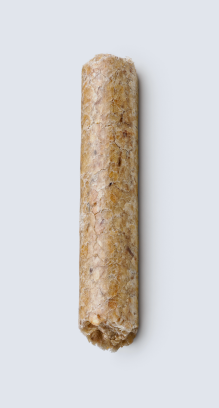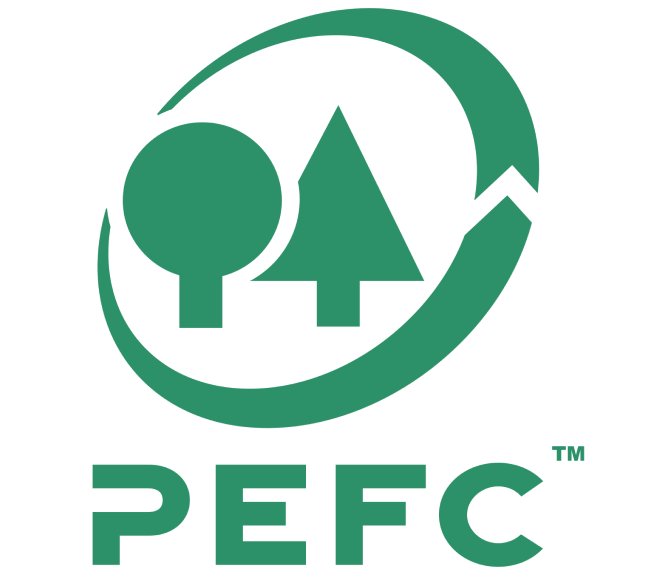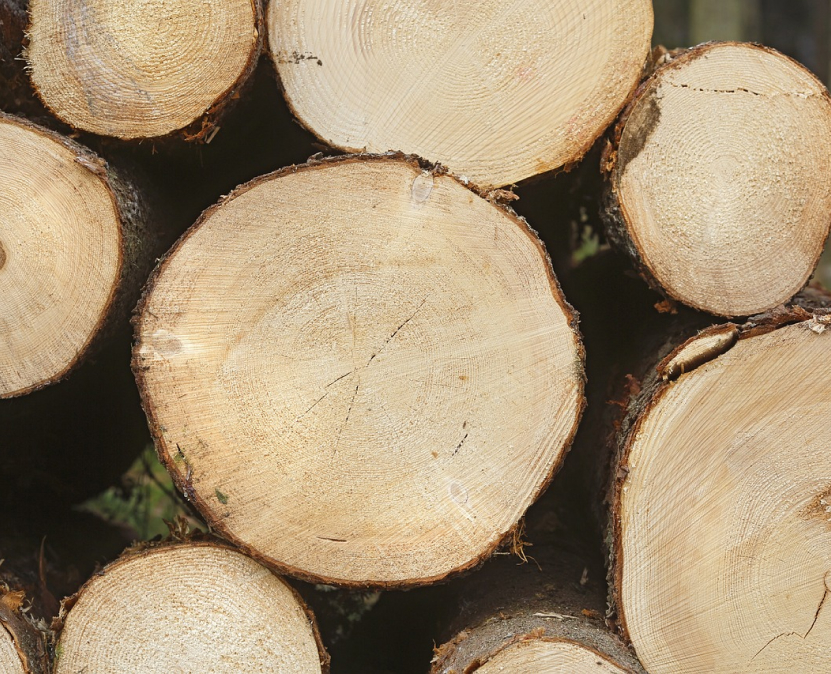Pellets - an intelligent alternative for mobile heating
Gas and oil still dominate the market as energy sources for mobile heating systems. However, wood pellets offer numerous advantages over fossil fuels in terms of sustainability, efficiency and cost. In this article, you will find out what makes pellets special and what benefits they offer.
What are pellets?

We introduce
Pellets are cylindrical sticks, about 25 mm long and 6 mm wide, which consist of wood residues such as sawdust, wood shavings or damaged timber. In rare cases, maize starch is also added. Depending on the region, consumers have a wide choice in terms of the types of wood used and also the origin of the wood.


If you pay attention to the environmental balance, buy pellets from regional sustainable forestry or exclusively from sawmill by-products. For example, the PEFC seal indicates that the wood comes from sustainable forest management. In addition, pellets must fulfil certain standards in many countries and regions, such as DIN EN 17225-2.
-
What is the PEFC seal?
Zuklappen Learn more -
What is DIN EN 17225-2?
Zuklappen Learn moreThis standard specifies the quality-related fuel classes and specifications for classified wood pellets for non-industrial and industrial use. This document applies to wood pellets produced from the following raw materials:
- Forest and plantation wood and other natural wood
- Industrial waste wood
- Chemically untreated used wood
-
Quality for the environment
The standards ensure compliance with ecological and technical requirements – in the area of sustainability, for example, the minimisation of environmental impact and, in the area of quality, aspects such as heating value, water content and diameter in order to guarantee efficient pellet combustion.

-
Quality for the service life of your heating system
The heating properties of the most common hard and soft woods hardly differ from each other. To protect the heating system, however, care should be taken to ensure that the pellets are made from untreated wood with the lowest possible mineral content. A high mineral content, such as in pine wood, can lead to increased ash formation and deposits during combustion, which can damage the heating system. Spruce wood, on the other hand, is very low in minerals and is therefore preferred for high-quality pellets.

What are the advantages of pellets?
When it comes to mobile heating in particular, pellets can score over fossil fuels in several areas:
Environment
Benefits for the environment
Pellet heating systems consume less energy than oil and gas heating systems. From extraction and transport to combustion, pellets produce significantly less CO2 emissions than fossil fuels. The high heater value of pellets is optimally utilised thanks to the advanced technology of our pellet heating systems. In addition to efficient filter systems, they now also offer comprehensive control over the combustion process and thus maximise efficiency.
Pellet heating systems have the advantage over oil heating systems that they can be operated in water protection areas without a special licence.
Support local produce
Choosing pellets made from regional sawmill by-products also contributes to the efficient use of wood, including its waste products. And the short transport routes also have a positive effect on the environmental balance – and on the local economy. Fossil fuels, on the other hand, often have to be transported over long distances, which is associated with high energy consumption and environmental pollution.
Emissions from energy source materials in comparison
-
CO2 emission*
Energy source material
-
0,226 kg / kWh
Fuel oil
light -
0,201 kg / kWh
Natural gas
-
0,036 kg / kWh
Wood pellets
-
0,152 kg / kWh
Biogas / biomethane
-
0,383 kg / kWh
Brown coal
-
* Fact sheet from the Federal Office for Economic Affairs and Energy: Energy-related optimisation of systems and processes, federal funding for energy efficiency in industry (as at 01.12.2020 – Switzerland)
Efficiency
High efficiency, high safety
Wood pellets have a high energy density, which means that they can store a lot of energy in a compact form. This makes storage, transport and handling easier. Leakages, for example, do not play a role compared to oil and gas.
Regardless of the type of wood, the heating value of pellets is approx. 5 kWh/kg.
-
Spruce
5,3 kWh / kg
-
Pine
5,2 kWh / kg
-
Beech
5,0 kWh / kg
-
Maple
4,9 kWh / kg
Modern pellet heating systems have a high efficiency of up to 90 per cent compared to conventional heating systems. This means that most of the energy from the pellets is converted into usable heat. The heaters can also be serviced remotely and fed automatically. This saves time and effort and ensures an even and efficient combustion process. The output can also be precisely adjusted to the heat requirement in order to minimise energy consumption.
Suter offers exactly such modern devices so that you can heat your mobile home more efficiently.
Costs
Stable price development
In terms of price per kilowatt hour, pellets are one of the cheapest energy sources. The pellet price is also less susceptible to fluctuations, as it is hardly affected by geopolitical events.
Prices March 2024
-
Electricity
28,26 Rp / kWh
-
Natural gas
15,36 Rp / kWh
-
Pellets
8,37 Rp / kWh
-
Fuel oil 10.59 Rp / kWh
10,89 Rp / kWh
-
Source: www.propellets.ch
Greater independence,
less maintenance
Pellets can be produced regionally and renewably. They are less susceptible to supply chain problems due to the short transport routes and are therefore also less dependent on developments of the international energy markets. Their high heating value ensures lower fuel consumption compared to fossil fuels and therefore also lower heating costs. In addition, modern pellet heating systems are low-maintenance and have a long service life, which also means lower maintenance costs.
That's why pellets are an intelligent alternative
-
More eco-friendly and efficient
In terms of environmental friendliness and efficiency, wood pellets offer clear advantages over fossil fuels, e.g. in terms of production, transport, pollutant emissions, heating value and efficiency.
-
More sustainable for the planet
The use of pellets from sustainable production actively supports the expansion of renewable energies, thereby increasing the proportion of sustainable energy sources in the energy matrix. Pellets are therefore not only a practical and efficient, but also an ethically responsible and sustainable option for mobile heating.
-
Independent & regional
Furthermore, pellets are one of the most favourable forms of heat generation for the foreseeable future, as they can be produced locally and renewably and are largely independent of geopolitical events.
Further questions about pellets or their procurement?
Suter can provide you with comprehensive support for the procurement of pellets for your Suter heating solution or for more specialised questions. Among other things, we can establish contacts with local certified pellet partners and support price negotiations.
Simply contact us now using our form.






